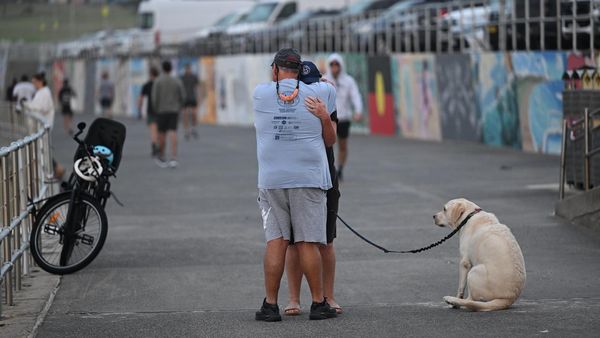
With the highest court in the US poised to hear her case – and decide her family’s future – Monica was keeping busy babyproofing her house.
Monica is a plaintiff in one of three lawsuits challenging Donald Trump’s birthright citizenship order, a case that is being heard before the nation’s highest court on Thursday. She’s expecting her first child in early August.
The Guardian first spoke with her in January, not long after Trump took office and signed an executive order seeking to end the constitutionally recognized right of birthright citizenship. Since then, she said, her belly has grown bigger, her feet more swollen. And she is still waiting to see whether her baby will be born as a citizen, or stateless.
“We can only wait and hope,” she said. “Let’s wait in faith and trust in the laws of this country.”
The Guardian is not publishing Monica’s surname, to protect her from retribution. She and her husband fled political persecution in Venezuela in 2019, and came to the US seeking asylum. The couple had been waiting for their immigration court hearing when they found out, in early January, that Monica was pregnant.
“We were so excited,” she said. Just two weeks later, news of Trump’s executive order landed like a blow. Acquiring Venezuelan citizenship for their child would be impossible – both Monica and her husband were outspoken critics of their country’s autocratic leader, Nicolás Maduro – and contacting the government could put them in danger.
“I had to fight for my baby,” she said.
She had been a member of the Asylum Seeker Advocacy Project (Asap), a non-profit group that advocates for immigrant rights, and when lawyers from the group reached out to expecting parents to see if any would like to join a lawsuit challenging Trump’s order, Monica felt compelled to respond.
Two immigration advocacy groups, Asap and Casa, are named as plaintiffs alongside Monica and four other mothers in one of three cases challenging the executive order. A second case was filed by four states and pregnant women, and a third by 18 states, the District of Columbia and San Francisco. The supreme court is hearing these cases consolidated as one.
Other than her mother and a few close relatives, nobody knows that she is involved in one of the most closely watched cases to come before the supreme court this year. She has concealed her identity and tried to maintain a low profile, to avoid biasing her family’s asylum case, and to protect her family in Venezuela.
But the topic of birthright citizenship and the administration’s intention to end it often comes up in her conversations with friends – especially with immigrant mothers who, like her, worry about their babies’ futures. “We are all on standby,” she said.
They worry, too, about news that mothers are being separated from their babies – or being deported alongside their children. “Every day there are new changes, there are new executive orders about us immigrants,” she said. “Every day there is more fear in immigration conditions.”
In the meantime, she said, there’s nothing to do but focus on the day to day. Monica and her husband have kept busy getting their home baby-ready, purchasing and assembling cribs and car seats. Now that she’s in her third trimester, she’s packed a go-bag with a change of clothes and other essentials – ready in case she needs to rush to the hospital. “We’re really down to the last few weeks already,” she said.
Recently, they settled on a name.







